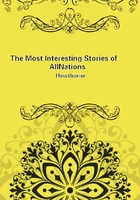
第33章 III(1)
THE VALET'S MASTER
The secret of the Man in the Iron Mask, or at least of one of the two persons who have claims to be the Mask, was "What had Eustache Dauger done?" To guard this secret the most extraordinary precautions were taken, as we have shown in the foregoing essay. And yet, if secret there was, it might have got wind in the simplest fashion. In the "Vicomte de Bragelonne," Dumas describes the tryst of the Secret-hunters with the dying Chief of the Jesuits at the inn in Fontainebleau. They come from many quarters, there is a Baron of Germany and a laird from Scotland, but Aramis takes the prize. He knows the secret of the Mask, the most valuable of all to the intriguers of the Company of Jesus.
Now, despite all the precautions of Louvois and Saint-Mars, despite sentinels for ever posted under Dauger's windows, despite arrangements which made it impossible for him to signal to people on the hillside at Les Exiles, despite the suppression even of the items in the accounts of his expenses, his secret, if he knew it, could have been discovered, as we haveremarked, by the very man most apt to make mischievous use of it--by Lauzun. That brilliant and reckless adventurer could see Dauger, in prison at Pignerol, when he pleased, for he had secretly excavated a way into the rooms of his fellow prisoner, Fouquet, on whom Dauger attended as valet. Lauzun was released soon after Fouquet's death. It is unlikely that he bought his liberty by the knowledge of the secret and there is nothing to suggest that he used it (if he possessed it) in any other way.
The natural clew to the supposed secret of Dauger is a study of the career of his master, Roux de Marsilly. As official histories say next to nothing about him, we may set forth what can be gleaned from the State Papers in our Record Office. The earliest is a letter of Roux de Marsilly to Mr. Joseph Williamson, secretary of Lord Arlington (December, 1668). Marsilly sends Martin (on our theory Eustache Dauger) to bring back from Williamson two letters from his own correspondent in Paris. He also requests Williamson to procure for him from Arlington a letter of protection, as he is threatened with arrest for some debt in which he is not really concerned. Martin will explain. The next paper is indorsed "Received December 28, 1668, Mons. de Marsilly." As it is dated December 27, Marsilly must have been in England. The contents of this piece deserve attention, because they show the terms on which Marsilly and Arlington were, or, at least, how Marsilly conceived them.
(1)Marsilly reports, on the authority of his friends at Stockholm, that the King of Sweden intends, first to intercede with Louis XIV. in favor of the French Huguenots, and next, if diplomacy fails, to join in arms with the other Protestant Powers of Europe.
(2)His correspondent in Holland learns that if the King of England invites the States to any "holy resolution," they will heartily lend forces. No leader so good as the English King--Charles II.! Marsilly had shown ARLINGTON'S LETTER to a Dutch friend, who bade him approach the Dutch ambassador in England. He has dined with that diplomatist. Arlington had, then, gone so far as to write an encouraging letter. The Dutch ambassador had just told Marsilly that he had received the same news, namely, that, Holland would aid the Huguenots, persecuted by Louis XIV.
(3)Letters from Provence, Languedoc, and Dauphine say that the situation there is unaltered.
(4)The Canton of Zurich write that they will keep their promises and that Berne is anxious to please the King of Great Britain, and that it is ready to raise, with Zurich, 15,000 men. They are not afraid of France.
(5)Zurich fears that, if Charles is not represented at the next Diet, Bale and Saint Gall will be intimidated, and not dare to join the Triple Alliance of Spain, Holland, and England. The best plan will be for Marsilly to represent England at the Diet of January 25, 1669, accompanied by the Swiss General Balthazar. This will encourage friends "to give His Britannic Majesty the satisfaction which he desires, and will produce a close union between Holland, Sweden, the Cantons, and other Protestant States."This reads as if Charles had already expressed some "desire."(6)Geneva grumbles at a reply of Charles "through a bishop who is their enemy," the Bishop of London, "a persecutor of our religion," that is, of Presbyterianism.However, nothing will dismay the Genevans, "si S.
M.B. ne change."
Then comes a blank in the paper. There follows a copy of a letter as if from Charles II. himself, to "the Right High and Noble Seigneurs of Zurich." He has heard of their wishes from Roux de Marsilly, whom he commissions to wait upon them. "I would not have written by my Bishop of London had I been better informed, but would myself have replied to your obliging letter, and would have assured you, as I do now, that I desire. . . ."It appears as if this were a draft of a kind of letter which Marsilly wanted Charles to write to Zurich, and there is a similar draft of a letter for Arlington to follow, if he and Charles wish to send Marsilly to the Swiss Diet. The Dutch ambassador, with whom Marsilly dined on December 26, the Constable of Castille, and other grandees, are all of opinion that he should visit the Protestant Swiss, as from the King of England. The scheme is for an alliance of England, Holland, Spain, and the Protestant Cantons, against France and Savoy.
Another letter of Marsilly to Arlington, only dated Jeudi, avers that hecan never repay Arlington for his extreme kindness and liberality. "No man in England is more devoted to you than I am, and shall be all my life."[1]
[1] State Papers, France, vol. 125, 106.